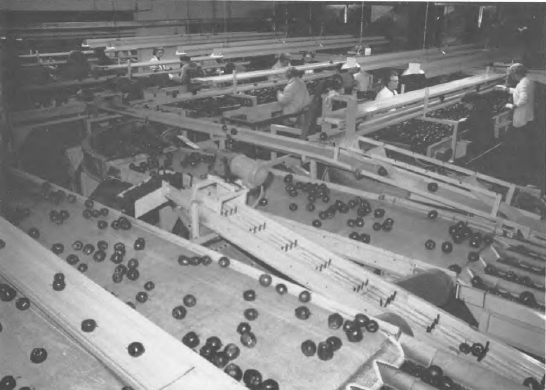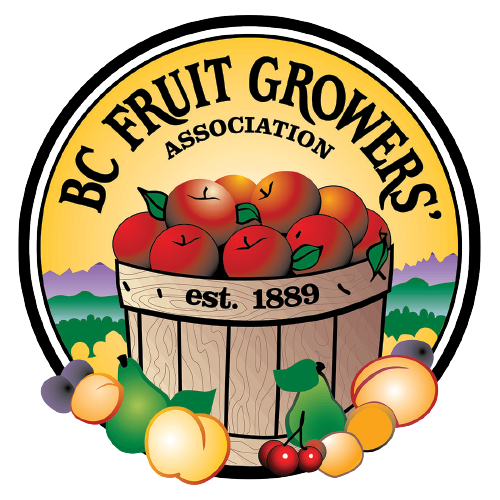The Fruitleggers
There was nothing new in efforts by a few growers to avoid the regulations of the Fruit Board and B.C. Tree Fruits by sending part of their crop out of the controlled area to sell for cash in outside markets, usually Vancouver. Even in the early 1960s such activity was known to go on, secretively.
A lot of it at that time . . . was done with cars that they stripped down, to get about twentyseven boxes, I’ve heard, in a car and take it down-in the trunk and the back seat and everywhere. All round except the driver.
What did change after 1969 was the scale of smuggling and the attitude of the smugglers. Gradually, the scale and the openness of their operations increased, as they began to use pickups and trucks to carry larger loads, and to coordinate their efforts in defiance of the Fruit Board regulations.

It used to be that the Fruit Board inspectors had certain powers, but not very many. And these people engaged a lawyer to advise them, and he told them a few things to do-like nailing a piece of plywood over the load of their pickup so that nobody could see what was in the boxes. The Fruit Board had no authority to open that up. They required a warrant to do that. And of course you couldn’t get a warrant ahead of time, and the Fruit Board had no authority to detain people on the road while somebody went to get a warrant.
When the fruitleggers started running convoys of trucks, the Fruit Board did call in the R.C.M.P. for assistance, but the police were very reluctant to get involved in what seemed to be an internal quarrel within the fruit growing community. And efforts to control the smuggling served only to crystallize the opposition and to arouse sympathy among the media and the urban public for the fruitleggers.
All we were doing was giving them all the publicity they could ever want. . . . [By 1973], they were riding high, and we were riding very low. . . . The public were sympathetic-to the point where Ian Greenwood, the General Manager of Tree Fruits, reported to the directors that they were down to twenty per cent of the Vancouver market. They’d lost eighty per cent of the market.’
The sales agency repeatedly warned that peddlers, by offering ungraded fruit of often dubious quality, were damaging the overall market for fruit. “Price is not a substitute for quality, and it is only good quality that brings the consumer back for a second purchase of fruit-so growers should weigh very carefully the long term effects a sale of low-quality fruit may have on the market.” But exhortation didn’t stop the fruitleggers, and other methods had no success either.







